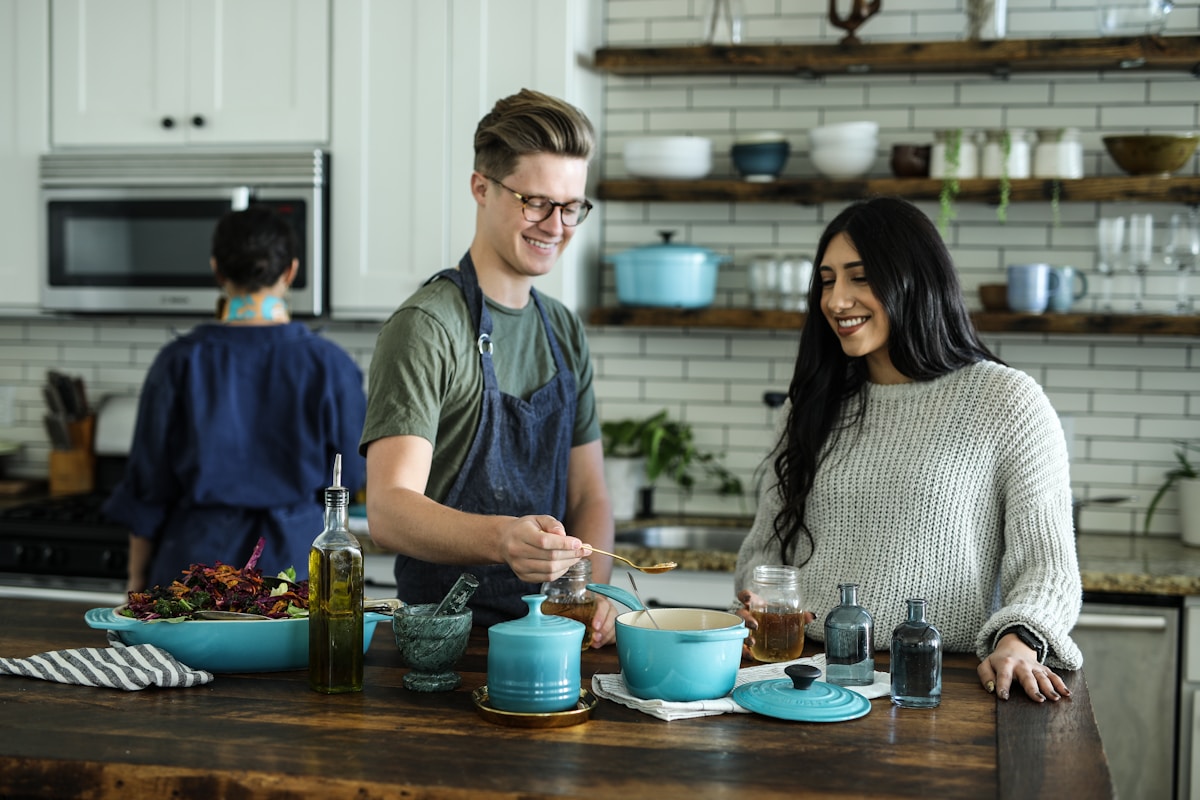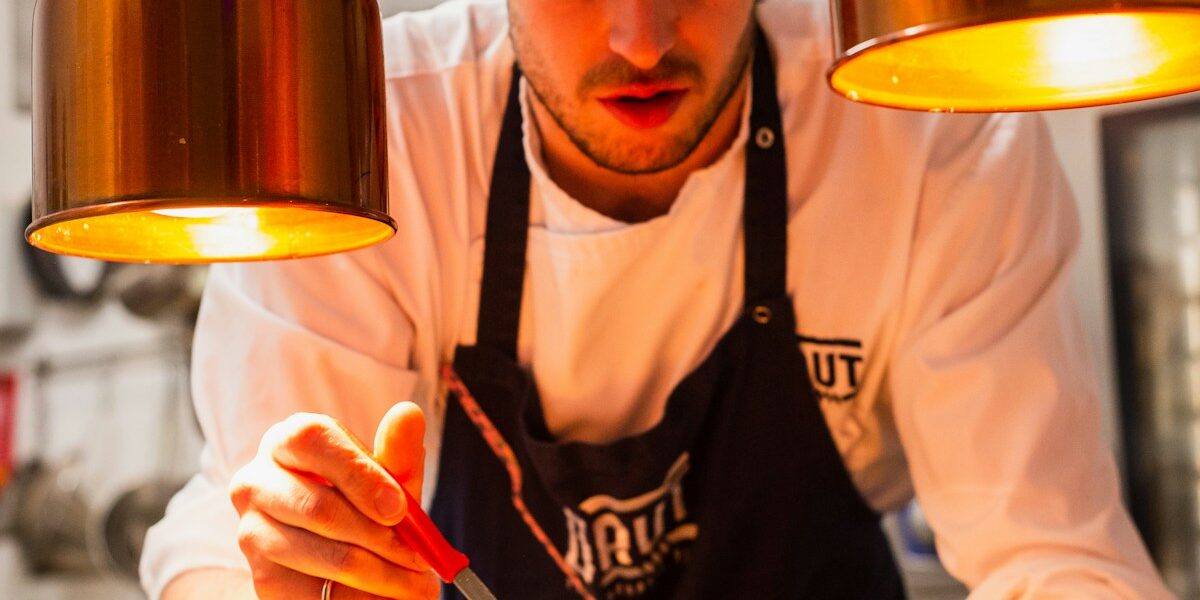Culinary Tips for Beginners
Culinary Tips for Beginners
Starting in the kitchen can be overwhelming. These tips will help you become more confident as you embark on your culinary journey.
1. Understand the Basics

Begin with mastering fundamental skills. Knowing how to properly chop, slice, and dice vegetables will save you time and improve your dishes. There’s a reason professional chefs spend years honing these skills.
- Knife Skills – Invest in a good knife and learn how to use it properly.
- Cooking Techniques – Understand basic techniques like sautéing, boiling, and roasting.
- Seasoning – Get familiar with salt, pepper, and a few essential spices.
2. Keep a Well-Stocked Pantry
Having staple ingredients on hand makes cooking easier. Stock your pantry with essentials like olive oil, rice, pasta, canned beans, and spices. These items form the basis of many recipes and can save a last-minute trip to the store.
- Grains – Rice, quinoa, and couscous.
- Canned Goods – Tomatoes, beans, and chickpeas.
- Spices – Basil, cumin, coriander, and paprika.
3. Start with Simple Recipes
Don’t jump straight into complicated dishes. Begin with easy recipes that require few ingredients and simple techniques. This approach will help you gain confidence without getting frustrated.
- Soup – Start with a basic vegetable or chicken soup.
- Stir-fry – Combine your favorite veggies and protein with a simple sauce.
- Pasta – Experiment with different sauces and add-ins like garlic, tomatoes, or spinach.
4. Read and Follow Recipes Carefully
When you’re starting out, follow recipes closely. Measure ingredients as specified. Pay attention to cooking times and temperatures. This will help you understand the process and improve your ability to tweak recipes later.
5. Taste as You Go
Don’t wait until the end to taste your food. Sample it at various stages of cooking. This will help you understand how flavors develop and allow you to make adjustments if needed.
6. Learn to Use Herbs and Spices
Add depth to your dishes by learning how to use herbs and spices effectively. Start with basics like basil, thyme, and rosemary. Fresh herbs can make a big difference. Don’t be shy to try different combinations.
- Herbs – Parsley, cilantro, and dill.
- Spices – Cinnamon, nutmeg, and turmeric.
- Combinations – Experiment with mixing spices for new flavors.
7. Invest in Quality Tools
Good kitchen tools can make cooking much more enjoyable. Start with a few essentials rather than a full set of every gadget.
- Chef’s Knife – A quality knife is invaluable.
- Cutting Board – Choose a durable one that’s easy to clean.
- Cookware – Non-stick skillet, a saucepan, and a baking sheet are versatile and useful.
8. Practice Patience
Cooking takes time to learn. Don’t be discouraged by mistakes. Each one is a learning experience. Consistent practice will steadily improve your skills.
9. Maintain Cleanliness
Keep your workspace clean. Clean as you go to avoid clutter. This practice is not only hygienic but helps you stay organized and focused.
10. Embrace Leftovers
Leftovers can save you time and reduce waste. Find creative ways to reinvent them. Sometimes they can taste better the next day as flavors continue to meld.
- Repurpose – Use leftover vegetables in a frittata or stir-fry.
- Store Properly – Invest in quality containers to keep food fresh.
- Freeze – Freeze portions for quick meals later.
11. Don’t Be Afraid to Experiment
While starting with simple recipes is key, don’t be afraid to try new things. Experiment with different cuisines and ingredients. Cooking is as much about creativity as it is about following rules.
12. Ask for Feedback
Share your culinary creations with friends and family. Ask for honest feedback. Constructive criticism helps you improve. Plus, cooking for others is a great joy and motivation.
13. Join a Cooking Class
If you learn better in a structured environment, consider joining a cooking class. This can be a hands-on way to learn new techniques and recipes. It’s also a great way to meet fellow food enthusiasts.
14. Use Fresh Ingredients
Whenever possible, use fresh ingredients. They often have more flavor and better texture compared to their canned or frozen counterparts. Fresh herbs, fruits, and vegetables can elevate your dishes significantly.
15. Plan Your Meals
Meal planning can save time and reduce stress. Write down a week’s worth of meals and shop accordingly. This ensures you have everything you need and helps you avoid last-minute takeout.
16. Learn About Food Safety
Understanding food safety is crucial. Always store and handle food properly. Know the safe cooking temperatures for various meats. This knowledge not only keeps you healthy but also boosts your confidence in the kitchen.
17. Record Your Progress
Keep a cooking journal. Write down what you’ve cooked, what worked, and what didn’t. This practice helps you track your progress and reminds you of recipes and techniques that you may want to revisit.
18. Use Technology
Leverage technology to aid your cooking. Apps and websites can offer a plethora of recipes, tutorials, and tips. Cooking videos on platforms like YouTube can provide visual guidance, making it easier to learn new techniques.
19. Understand Your Oven
Every oven is different. Get to know yours by using an oven thermometer to ensure the temperature is accurate. This knowledge is especially useful for baking.
20. Prep Ahead
Preparing ingredients in advance can streamline the cooking process. Chop vegetables, measure spices, and marinate proteins ahead of time. This technique, known as mise en place, helps keep things organized and efficient.
21. Keep Learning
Cooking is an ongoing learning experience. Read cookbooks, watch cooking shows, and follow food blogs. Engage with the culinary community to continuously expand your knowledge and skills.
22. Have Fun
Relax and enjoy the process. Cooking should be a fun and rewarding experience. Don’t be too hard on yourself and celebrate your successes, no matter how small.
Recommended Coffee Gear
Baratza Encore Conical Burr Grinder – $169.00
The gold standard entry-level burr grinder.
Hario V60 Ceramic Dripper – $25.00
Pour-over perfection for specialty coffee lovers.
As an Amazon Associate, we earn from qualifying purchases.



